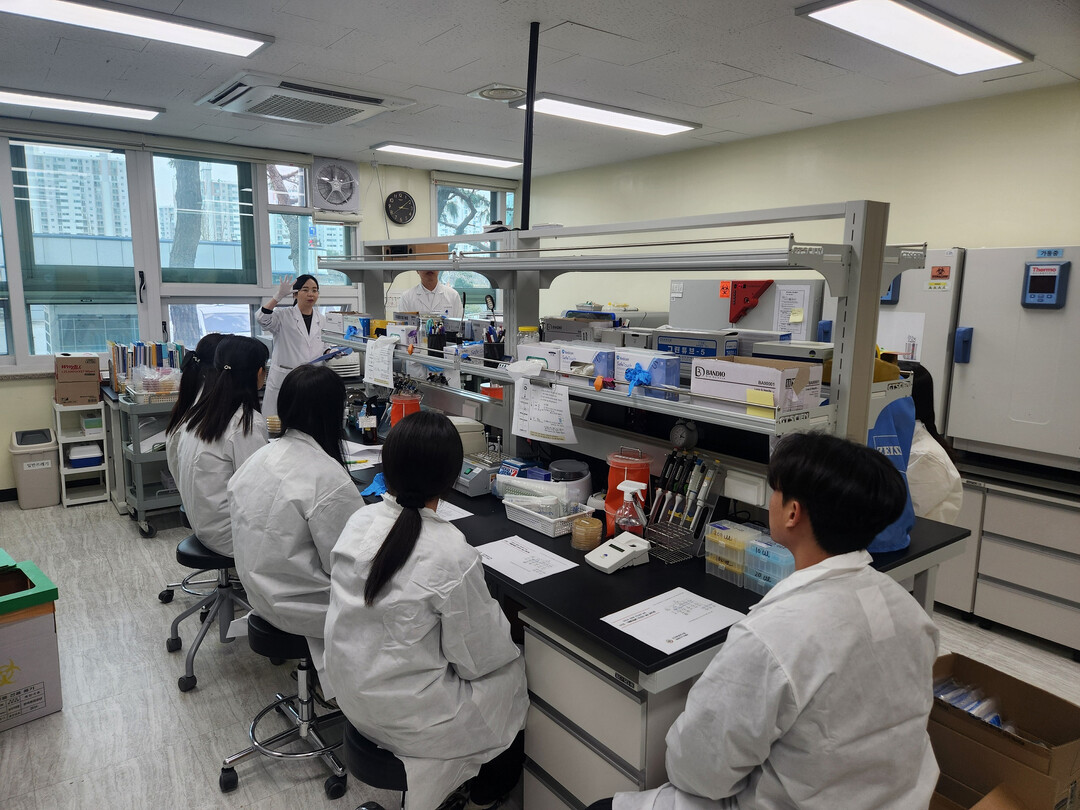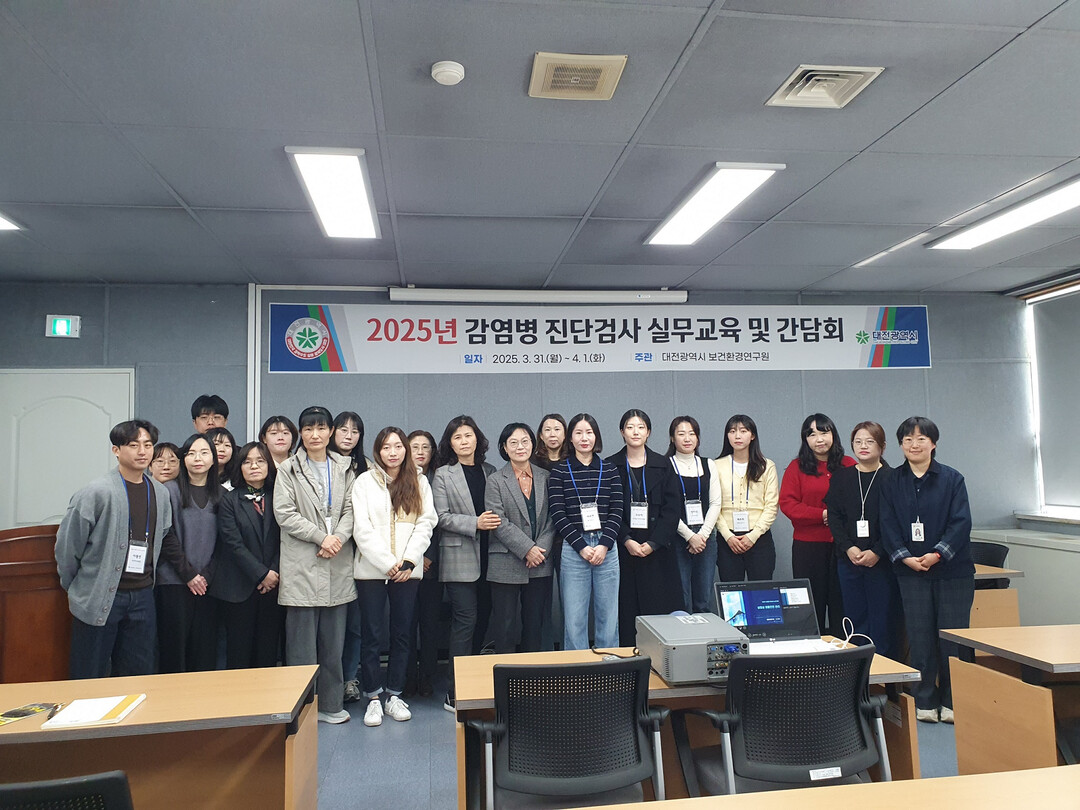
The Daejeon Institute of Health & Environment is taking steps to strengthen its proactive response capabilities for infectious diseases and solidify the local community's public health safety net. To this end, the institute conducted specialized training for infectious disease diagnosis practitioners and held a meeting to reinforce the foundation for cooperation with relevant organizations.
The training took place over two days, from March 31st to April 1st, and was aimed at infectious disease diagnostic testing personnel from eight institutions, including public health centers in the Daejeon area, the Armed Forces Medical Research Institute, and Eulji University Hospital.
The training program featured experts in pathogen diagnosis from the Korea Disease Control and Prevention Agency (KDCA) and working-level staff from the Institute of Health & Environment as instructors. The curriculum combined theoretical lectures and practical laboratory sessions on topics such as ▲laboratory biosafety management, ▲diagnosis of causative agents of waterborne and foodborne diseases, and ▲AIDS diagnostic testing, thereby aiming to improve practical diagnostic capabilities. Through this, participants cultivated the practical skills to perform rapid and accurate pathogen testing.
In addition, a meeting with relevant organizations was held to establish a systematic and effective joint response in the event of an infectious disease outbreak. Representatives from local public health centers and medical institutions attended the meeting to review the cooperative system and discuss ways to strengthen information sharing and practical collaboration between institutions, further solidifying the foundation for infectious disease response.
Shin Yong-hyun, Director of the Daejeon Institute of Health & Environment, stated, "I hope that this training will serve as an important opportunity to not only enhance the practical skills of specialized personnel for infectious disease response but also further strengthen the cooperative system between relevant organizations. We will continue to do our best to prevent the spread of infectious diseases within the region through the ongoing operation of educational programs and the strengthening of networks."

[Copyright (c) Global Economic Times. All Rights Reserved.]






























